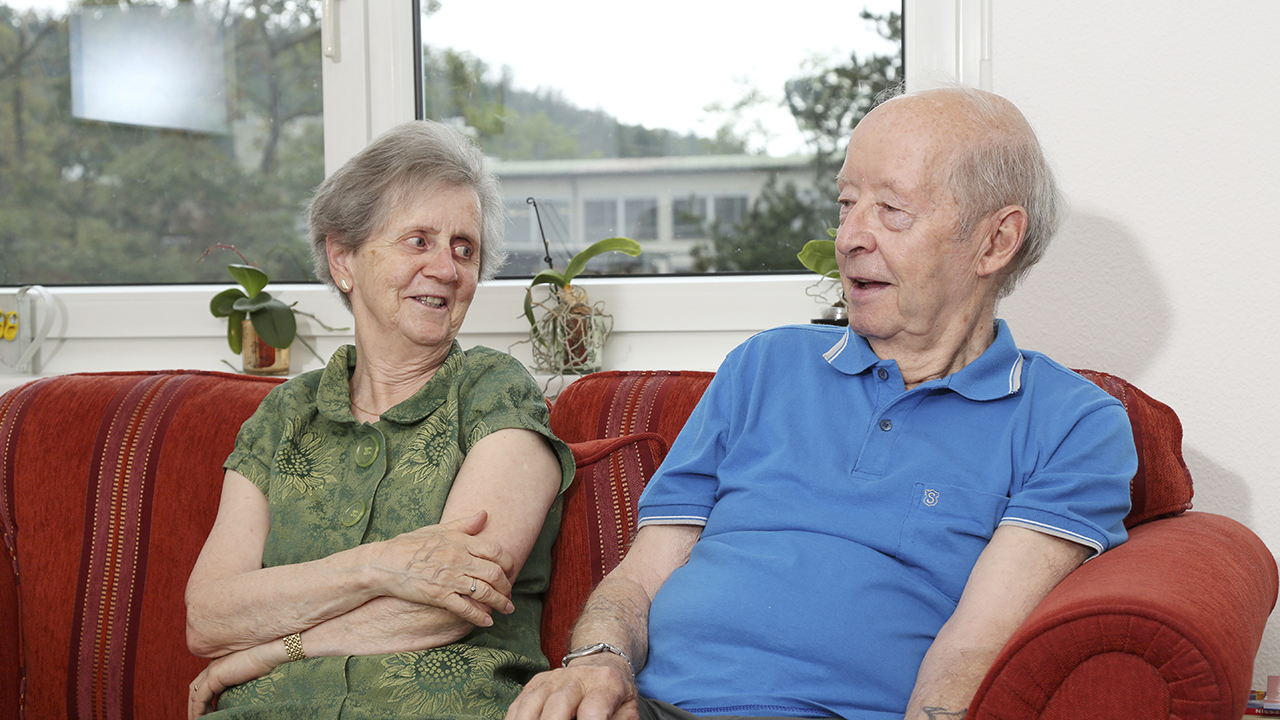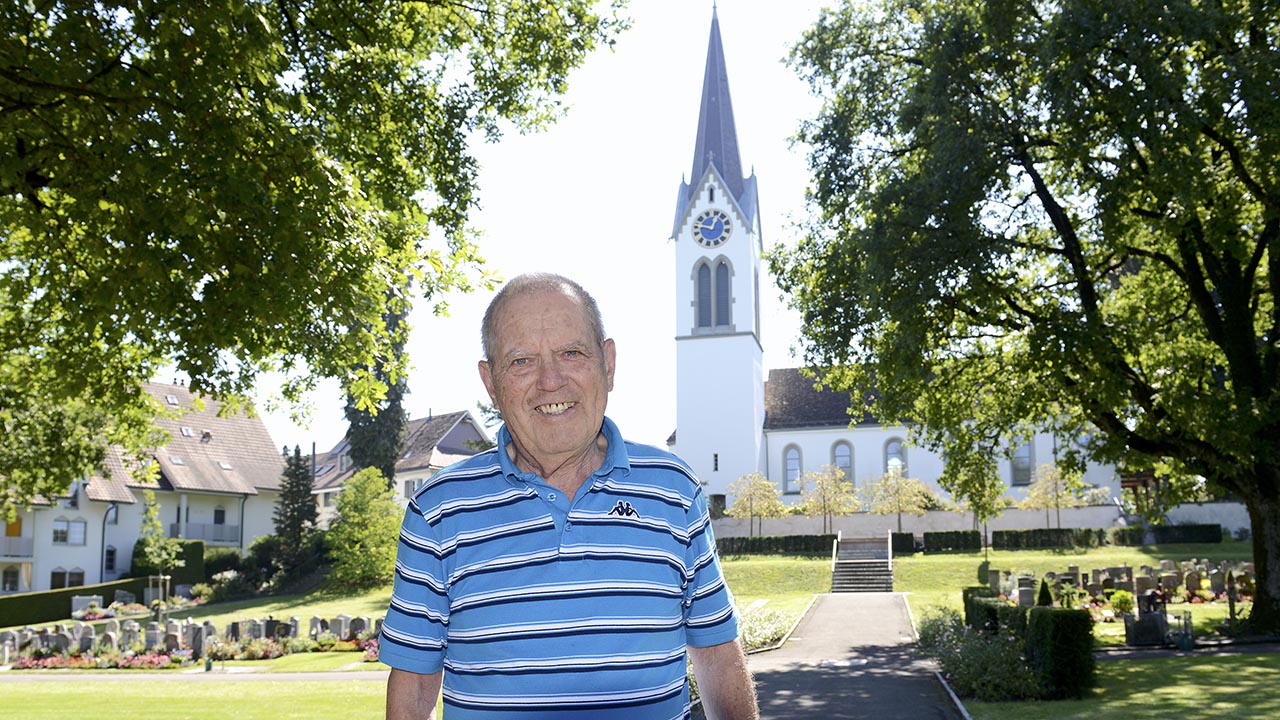You are a board member for FreeTheBees in French-speaking Switzerland. How did it come about?
I have always been very interested in the conservation of nature and biodiversity. Unfortunately, I had too little time during my professional life to devote to this subject. Since April 2020, I have been enjoying early retirement and can devote more time to all the activities that were previously neglected. By a lucky coincidence, I came into contact with FreeTheBees and attended a course by André Wermelinger. The philosophy and the global approach convinced me right away. From that moment on, I decided to get involved with FreeTheBees. After that, one thing led to another: Already at the first meeting, I was elected as the person responsible for FreeTheBees Suisse romande and immediately became a member of the Swiss board.
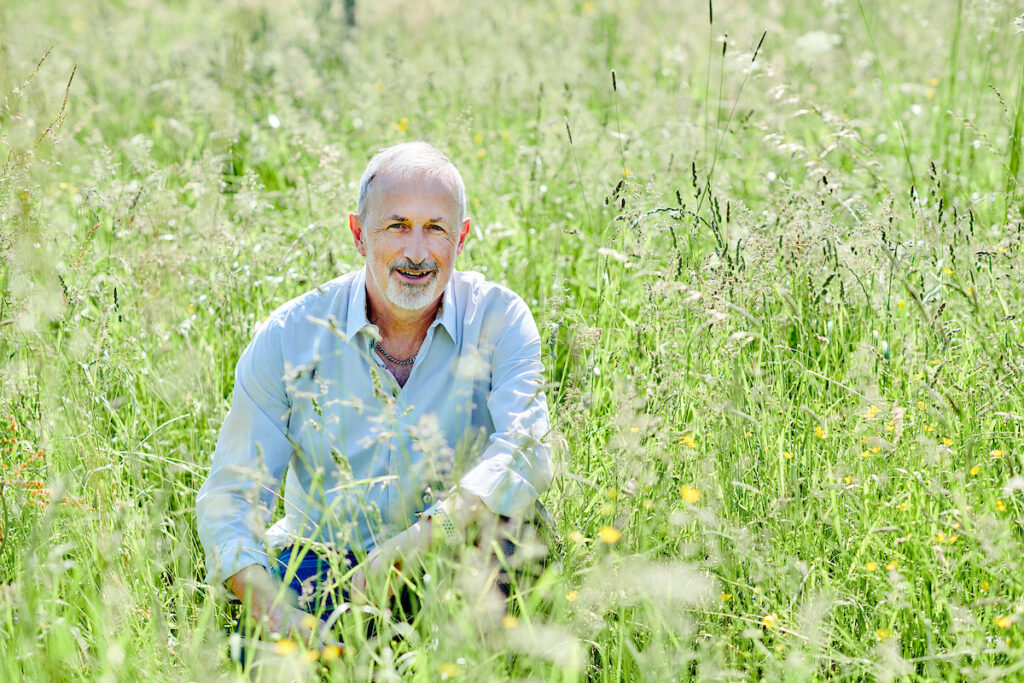
Why are bees in particular close to your heart?
Bees are vital for nature, for pollination and for the natural balance. I have wanted to get involved with this worthy cause for a long time. Finally, I was able to start. I immediately acquired two beehives and planted two flower meadows.
On the one hand, I am fascinated by the way of life and the structure of bee colonies. There is a clear organization: there is the egg-laying queen as well as the males, called drones, which serve solely for reproduction and are eaten after their duty is done. Around them, the female bee colony takes care of the welfare of the brood and the queen. What is fascinating about females is that they undergo role reversal throughout their lives. They develop with age and take on other tasks.
On the other hand, I love spending time watching the bees, making sure they are doing well and listening to them buzz. This is very relaxing. Even my three-year-old granddaughter is already fascinated by the role of the queen bee. She often accompanies me on my observation forays.
How are the bees doing in general?
They generally enjoy incredible popularity. Unfortunately, the public is poorly informed about the real situation of the bee, especially the honey bee. The fact is that most beekeepers practice intensive breeding. They consider the bee mainly as a honey producer and over-exploit it. In addition, most beekeepers resort to dangerous products such as oxalic acid. So we are far from an idyllic and respectful world in the hives.
What would beekeepers have to change?
There are three things and at the same time the three pillars on which FreeTheBees bases its philosophy:
First, the bee must return to the wild nature. This is the only way it can adapt to their development, as it has done so far. Keeping bees exclusively in hives and controlling their honey production is not compatible with a life in the wild.
Second, beekeeping must become sustainable. To achieve this goal, FreeTheBees organizes training courses for beekeepers. They learn how to diversify beekeeping in a sustainable and less intensive way.
Third, bee habitat must be enhanced. This means that wherever they cannot survive on their own, we need to increase the diversity of flowering honey plants. In addition, we can promote the existence of hollow trees or cavities in trees, thus creating important habitat.
How are your own bees doing?
Since I just started keeping bees in April, my experience is still very fresh. My main goal is to provide a natural, wild habitat for bee colonies. For this purpose, I installed two hive models from SwissTree as shelter in 2020. The Swiss Tree habitat was developed thanks to the collaboration between FreeTheBees and the company Nova Ruder. Swiss Tree facilitates a return to nature for bee colonies. Its shape resembles the natural cavities in trees, which are home to insects in the wild. Unlike the traditional hive, the walls of the SwissTree are thicker and offer the bees better protection from the heat of summer and the cold of winter. In a Swiss Tree, a bee colony can overwinter with only three kilos of honey. In the traditional hive, it takes at least four times as much to survive.
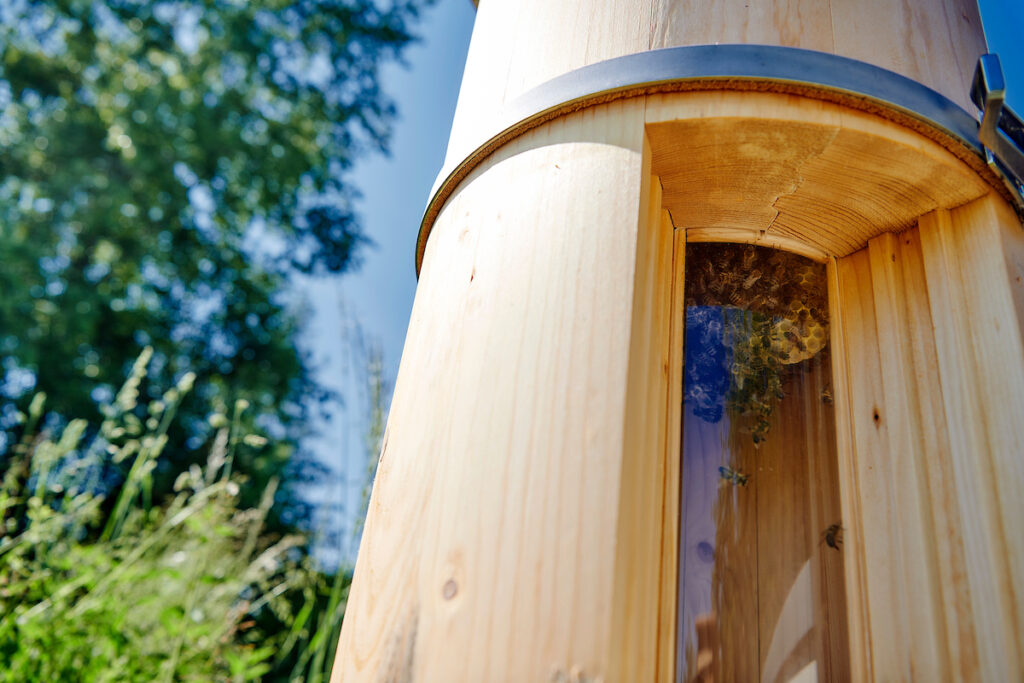
Do you have a vision regarding FreeTheBees? If so, how realistic is their implementation? What does it take?
It is the return of the bee to nature. It is important to me to do everything possible for this. This includes continuously informing the public about the depressing reality of bees in apiaries and the dangers of intensive breeding.
Do you have a personal life motto?
One should always see the glass half full.
How did you come up with the idea to donate part of your inheritance to FreeTheBees? What motivates you to do this?
I have been retired for a year, have no financial worries, and my house is already in our only son’s name. That gave the impetus to think about this topic. My decision is not yet final. My wife and son know my thoughts. As long as my future and that of my family is secure, I consider it important to donate part of my wealth to a cause that is close to my heart.
How can interested parties support the activities of FreeTheBees?
There are several ways: Each person can donate any amount to FreeTheBees or support a specific project. Currently there are several projects , for example the Swiss BeeMapping, the training of sniffer dogs or the creation of habitats for wild bees.
But you can also become a member. There are different variants: the regular member, the silver, the gold and the platinum. Each of the four memberships includes different financial terms and benefits. You can find information about this on our website: FreeTheBees.ch.
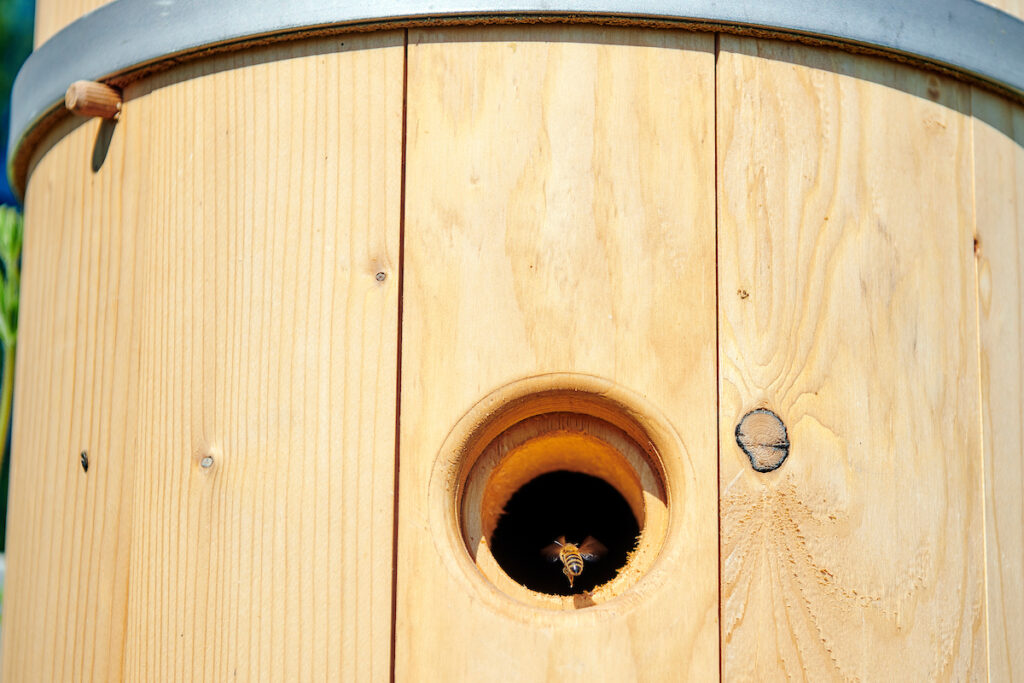
Every honey lover should be aware: Honey is not a mass product. Pure honey is a gift of nature, a delicacy. Species-appropriate animal husbandry is of immense importance for the future of bees and the ecosystem. That is why you should pay attention to the ecological quality of honey. Caution: The usual organic labels are not much good.
We recommend buying honey from apiaries far from intensive agriculture. Currently, FreeTheBees is working on its own honey label. It is called ApiVita and produces ecologically sustainable honey. Under this label, the beekeeper is allowed to produce honey extensively with 80% of his stock, but must keep 20% of his bee colonies close to nature. The first ApiVita honey is expected to hit the market in 2022.
In the meantime, we encourage everyone to buy their honey from local beekeepers and distributors who produce according to Delinat beekeeping principles and are not primarily interested in short-term yield optimization. A selection of sustainable honey suppliers is listed at vitaverdura.ch, honigwahl.ch and bienli. ch. Readers can find out more about honey consumption at https://freethebees.ch/honig/.
FreeTheBees ist die wohl einzige Honigbienen-Organisation Europas frei von Imkerinteressen. Die Mitglieder geniessen ein offenes, ehrliches und kritisch-konstruktives Tätigkeitsumfeld. Ein wissenschaftlicher Beirat sichert die Qualität der Arbeiten und gewährleistet eine unabhängige, fachübergreifende und objektive Sichtweise.
FreeTheBees ist Partner von Dein Adieu.ch.
André Dunand (1957) aus Fribourg ist Heilpädagoge und hat während dreissig Jahren in der Umgebung von Freiburg einen Arbeitsplatz für Erwachsene mit Behinderungen geführt. Mit seiner Frühpensionierung im Jahr 2020 ist er dem Vorstand von FreeTheBees beigetreten. Seit 2004 leitet er die «Salons du mieux-vivre» in Fribourg und Saignelégier. Ausserdem ist André 2009 Präsident der VOPSI, Verband der Organisationen des Personals der Sozialen Institutionen des Kantons Freiburg.

